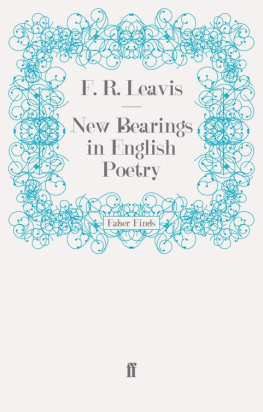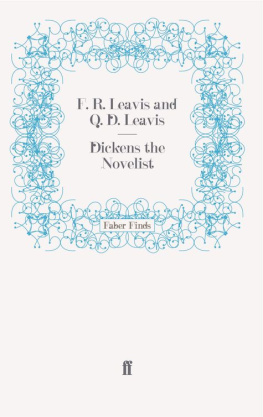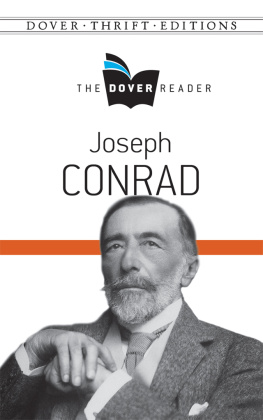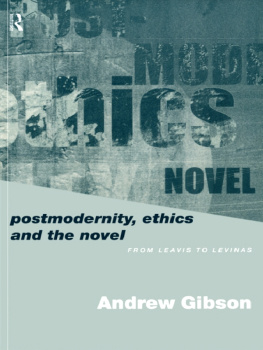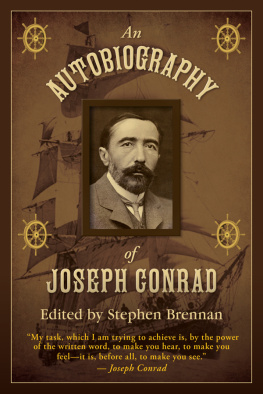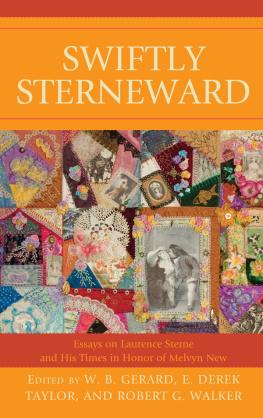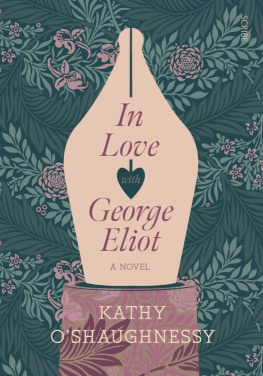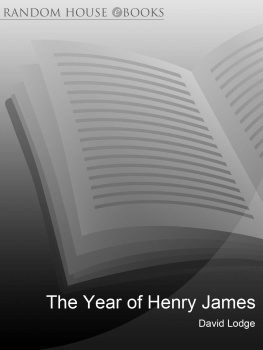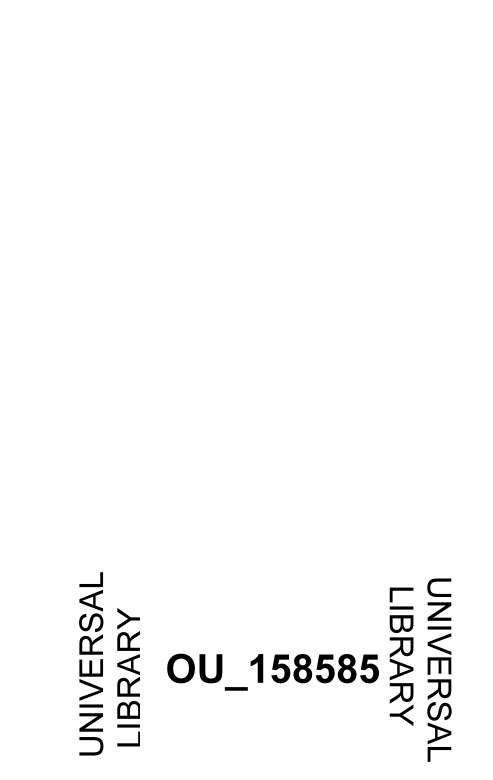PRINTED IN GREAT BRITAIN
SECOND IMPRESSION : 1950 ALL RIGHTS RESERVED
Contents
I THE GREAT TRADITION page i
II GEORGE ELIOT
i The Early Phase 28
ii Romola to Middlemarch 47
iii Daniel Deronda and The Portrait of a Lady 79
III HENRY JAMES
i To The Portrait of a Lady 126
ii The Later James 154
IV JOSEPH CONRAD
i Minor Works and No^romo 173
ii Victory, The Secret Agent, Under Western
Eyes, and Chance 201
V ' HARD TIME'S ': An Analytic Note 227
APPENDIX
Acknowledgments
The greater part of this book appeared first in Scrutiny, and for permission to >use this matter I am indebted to the Editors. The second part of the critique of Henry James appeared in the issue for March, 1937. That of Conrad appeared in June and October, 1941, and that of George Eliot in 1945 and 1946. I have also to thank Messrs. John Farquharson, acting on behalf of the Henry James' estate, for kind permission to reprint Daniel Deronda: A Conversation, aj an Appendix to this volume.
My sense of my immeasurable indebtedness, in every page of this book, to my wife cannot be adequately expressed, and I cannot express it at all without an accompanying consciousness of shortcomingsno one but myself has any part in themthat makes me insist at the same time on
my claim to all the responsibility.
F. R. L.
1 1 know how hard it is. One needs something to make ones mood deep and sincere. There are so many little frets that prevent our coming at the real naked essence of our vision. It sounds boshy, doesnt it? I often think one ought to be able to pray, before one. works and then leave it to the Lord. Isnt it hard, hard work to come to real grips with one's imagination throw everything overboard. I always feel as if I stood naked for thejire of Almighty God to go through me and it's rather an awful feeling. One has to be so terribly religious, to be an artist. I often think of my dear Saint Lawrence on his gridiron, when he said, " Turn me over, brothers, I am done enough on this side 91 . 9
To ERNEST COLLINGS. FEB. 24, 1913
THE LETTERS OF D. H. LAWRENCE
I THE GREAT TRADITION
'... not dogmatically but deliberately...' JOHNSON : Preface to Shakespeare
great English novelists are Jane Austen, George Eliot, A Henry James and Joseph Conradto stop for the moment at that comparatively safe point in history. Since Jane Austen, for special reasons, needs to be studied at considerable length, I confine myself in this book to the last three. Critics have found me narrow, and I have no doubt that my opening proposition, whatever I may say to explain and justify it, will be adduced in reinforcement of their strictures. It passes as fact (in s^ite of the printed evidence) that I pronounce Milton negligible, dismiss 'the Romantics', and hold that, since Donne, there is no poet we need bother about except Hopkins and Eliot. The view, I suppose, will be as confidently attributed to me that, except Jane Austen, George Eliot, James and Conrad, there are no novelists in English worth reading.
The only way to escape misrepresentation is never to commit oneself to any critical judgment that makes an impactthat is, never to say anything. I still, however, think that the best way to promote profitable discvss'on is ',o be as clear as possible with oneself about what one sees and judges, to try and establish the essential discriminations in the given field of interest, and to state them as clearly as one can (for disagreement, if necessary). And it seems to me that in the field of fiction some challenging discriminations are veiy much called for; the field is so large and offers such insidious temptations to complacent confusions of judgment and to critical indolence. It is of the field of fiction belonging to Literature that I am thinking, and I am thinking in particular of the present vogue of the Victorian age. Trollope, Charlotte Yonge, Mrs. Gaskell, Wilkie Collins, diaries Reade, Charles and Henry Kingsley, Marryat, Shorthouse *one after another the minor novelists of that period
1 The novelist who has not been revived is Disn^tf. Yet, though he is no t one of the great novelists, he is so alive and intelligent as to deserve permanent currency, at any rate in the trilogy Coningsfy, Sybil and Tancredi his
THE GREAT TRADITION
are being commended to our attention, written up, and publicized by broadcast, and there is a marked tendency to suggest that they not only have various kinds of interest to offer but that they are living classics. (Are not they all in the literary histories ?) There are Jane Austen, Mrs. Gaskell, Scott, 'the Brontes', 1 Dickens, Thackeray, George Eliot, Trollope and so on, all, one gathers, classical novelists.
It is necessary to insist, then, that there are important distinctions to be made, and that far from all of the names in the literary histories really belong to the realm of significant creative achievement. And as a recall to a due sense of differences it is well to start by distinguishing the few really greatthe major novelists who count in the same way as the major poets, in the sense that they not only change the possibilities of the art for practitioners and readers, but that they are significant : u terms of the human awareness they promote; awareness of the possibilities of life. 2
interests as expressed in these booksthe interests of a supremely intelligent politician who has a sociologist's understanding of civilization and its movement in his timeare so mature.
1 See note 'The Brontes', page 27 below.
2 Characteristic of the confusion I am contending against is the fashion (for which the responsibility seems to go back to Virginia Woolf and Mr. E. M. Forster) of talking of Moll Flanders as a 'great novel*. Defoe was a remarkable writer, but all that need be said about him as a novelist was said by Leslie Stephen in Hours in a Library (First Series). He made no pretension to practising the novelist's art, and matters little is an influence. In fact, the only influence that need be noted is that represented by the use made of him in the nineteen-twenties by the practitioners of the fantastic conte (or pseudo-moral fable) with its empty pretence of significance.
Associated with this use of Defoe is the use that was made in much the same milieu of Sterne, in whose irresponsible (and nasty) trifling, regarded as in some way extraordinarily significant and mature, was found a sanction for attributing value to other trifling.
The use of Bunyan by T. F. Powys is quite another matter. It is a mark of the genuine nature of Mr. Powys's creative gift (his work seems to me not to have had due recognition) that he has been able to achieve a kind of traditional relation to Bunyanespecially, of course, in Mr. Westons Good Wine. Otherwise there is little that can be said with confidence about Bunyan as a/i influence. And yet we know him to have been for two centuries one of the most frequented of all classics, and in such a way that he counts immeasurably in the English-speaking consciousness. It is, perhaps, worth saying that his influence would tend strongly to reinforce the un-Flaubertian quality of the line of English classical fiction (Bunyan, Lord David Cecil might point out see p. 8 belowwas a Purican), as well as to co-operate with the Jonsonian traction of morally significant typicality in characters.


